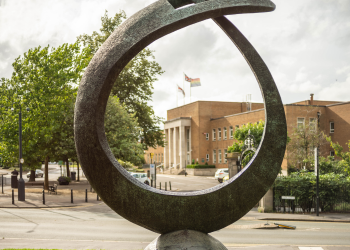Rupert Brooke
Rupert Brook - First World War poet
Rugby was the birthplace of Rupert Brooke, the famous First World War poet whose sonnets captured the idealism of the early years of the Great War.
Brooke's collection of work - 1914 and Other Poems - was published in May 1915, just weeks after the 27-year-old died from sepsis while serving with the Royal Navy.
But his words still resonate to this day, and Rugby has commemorated Rupert Brooke by erecting a statue in his honour in the town centre.
"If I should die, think only this of me; That there's some corner of a foreign field that is for ever England."

